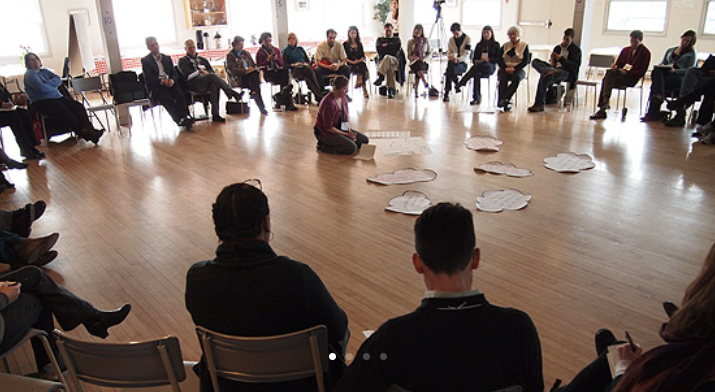June 2015 saw us pack our bags and head for the UK, well specifically Ribby Hall, Wrea Green Lancashire in England’s North West for the 2015 ABCD Festival.
We had read the program, in fact assisted with writing the program with the ABCD team. We were looking forward to meeting very skilled ABCD practitioners and of course welcoming newbies to ABCD from around the world. Yes, we were excited.
From the moment we arrived we knew we were in the right place at the right time. We got straight into the spirit and helped deliver participants food hampers, what a great way to get to know fellow participants. It became evident that the festival had attracted people from diverse backgrounds and countries. In fact, almost 200 festival goers from 21 countries. The opportunity to immerse ourselves in 5 day learning environment with like-minded people with diverse experience and knowledge was one we were definitely going to embrace.
As the festival got underway the opportunity to hear from an amazing line up of presenters including John McKnight, Jody Kretzmann, Cormac Russell and our Aussie colleague Peter Kenyon allowed us to reflect on our practice, understand where ABCD came from and where the future may lead and listen to some entertaining stories. Colleagues from South Africa, Canada and England shared stories of ABCD application in a variety of settings.
Topic tents was the real “GOLD” of the festival, Dee did an amazing job of co-ordinating the sessions to allow participants to explore issues important to them or join a discussion that appealed to them. As always the best learnings and connections were made over discussions during the breaks, meal times and evening activities.
The festival embraced the “community” spirit, providing us with the opportunity to cook an evening meal for other festival goers and have others prepare an evening meal for us. A highlight and pleasure of the festival was to hosting our Vietnamese neighbours and to be hosted the following night by our Dutch colleagues for dinner. A great opportunity to swap stories and learn from each other.

Highlights for Michelle were abundant although being able to connect with John and Jody in person gaining a deeper understanding of the history of the Asset Based Community Development movement, meeting Jody’s talented wife Ingrid and the expert team from Coady and having the opportunity to spend some time with Peter Kenyon were definite moments of total gratitude. Michelle was inspired by the passion of all delegates for community and the collective understanding that communities have the skills and passion to lead change for things that they care deeply about. As John McKnight noted in his presentation “It’s about democracy” and for Michelle, ABCD is all about valuing and listening to everyone in communities. Leaving the festival was difficult after having 5 days of total immersion in ABCD however on a high note, Michelle’s tool kit is overflowing with knowledge, stories and experiences from the ABCD collective.
Highlights for Dee were also many! Being able to connect face-to-face with practitioners who had previously only been faces on Skype or names in an email was the best experience. Catching up with Jody Kretzmann, after many years since his last visit to Australia, was a wonderful way to start the week and learning more about Ingrid’s inspiring work was a bonus along with spending time with John and Marsha! Facilitating the Topic Tents and Open Space sessions are always a blast but this one was special; it’s not often that so many ABCD practitioners are in the one room together so, “organising the organisers” was definitely a highlight! Team Coady’s input from many different countries assisted in a rich sharing of knowledge and wisdom and, as is usual, the evening gatherings, after a big day of work, were where deeper connections were made over a pint or two! The success of the festival guarantees the likelihood of future gatherings and we are looking forward to being part of the team again and meeting more like-minded people through our participation.
As Jody said, in his closing remarks, “[ABCD practitioners] are Defenders of the Small. The smaller we remain [in practice], the more we are able to focus on the local and the more powerful the movement is.”
With this said, we invite you consider to start thinking big about thinking small and join us on the wave of change!
Yours in community,
Michelle and Dee
ABCD Asia Pacific Facilitators











